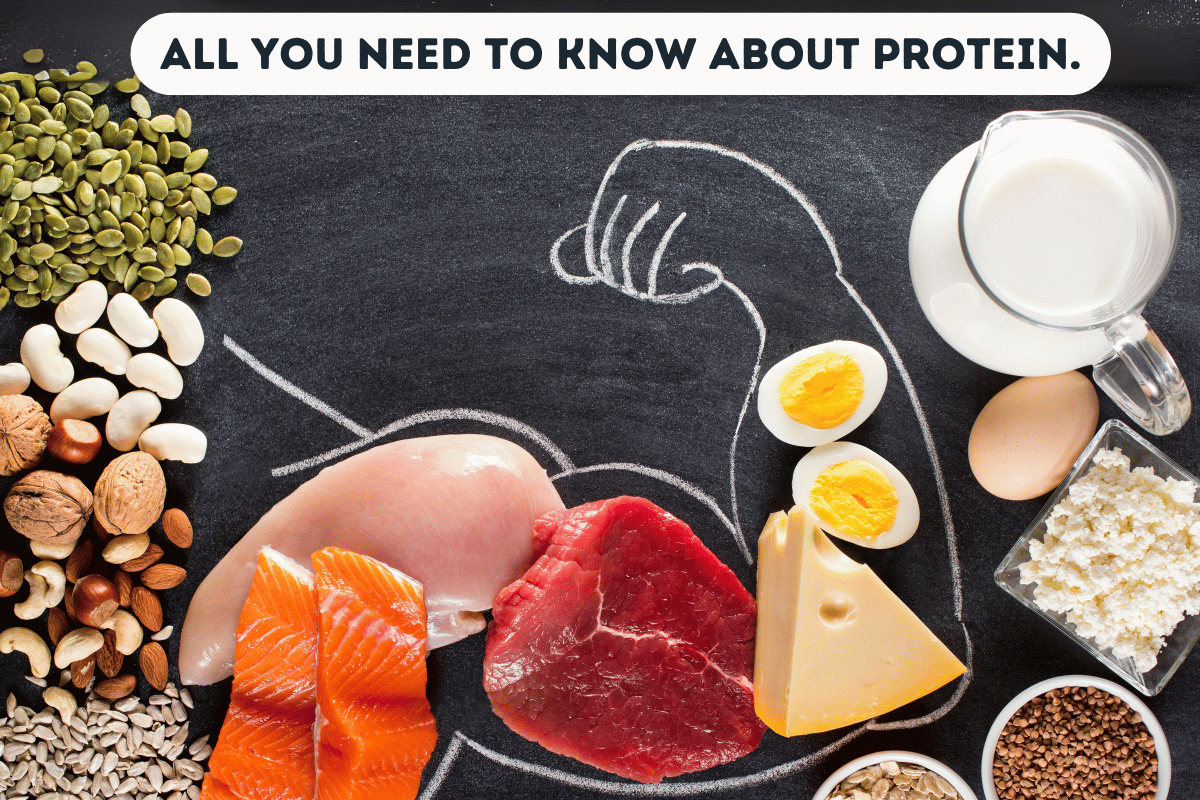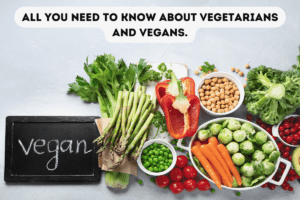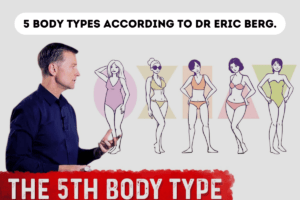Everybody who is trying to build muscles or even just exercising for general health, heard about requirements of protein. Protein is essential macronutrient for our bodies and not just for muscle growth. It is responsible for many other functions in our body like building and repair of body tissues, enzyme, and hormone production. Protein plays a vital role in regulating body processes such as transporting nutrients and it keeps the body healthy by resisting to diseases. Consuming the right amounts of protein produces stamina and energy that will prevent you from becoming tired.
How protein is constructed
Let’s have a closer look at how protein is constructed. A protein is a complex molecule made up of 20 amino acids. All these 20 amino acids are shown in the table below.
| Alanine | Glutamic acid | Leucine | Serine |
| Arginine | Glutamine | Lysine | Threonine |
| Asparagine | Glycine | Methionine | Tryptophan |
| Aspartic acid | Histidine | Phenylalanine | Tryosine |
| Cysteine | Isoleucine | Proline | Valine |
Our body needs all of twenty amino acids shown in this table. Twelve of these amino acids body can synthesize by itself. The remaining eight are known as ‘essential’ (are shown in bold in the table above) amino acids and must be obtained from sources of protein in the diet. In addition to the eight ‘essential’ amino acids, histidine is also an essential amino acid for children and, in some circumstances, adults.
Dietary sources of protein are of two types, depending on their amino acid content. Complete proteins (derived from animals) contain all the essential amino acids that the body requires for making proteins. Incomplete proteins (derived from plants) are low in some essential amino acids.
Animal proteins occur in these foods: red meat, chicken and other white meats, fish, dairy products, eggs. These proteins are high in essential amino acids and are called complete proteins. Plant proteins occur in these foods: fruits and vegetables, nuts, seeds, beans, and pulses. They are low in some essential amino acids and are called incomplete proteins.
How to get enough protein for vegetarians
If person is a vegetarian or vegan, he still can get all necessary amino acids from plant-based proteins. The key is to consume a wide variety of plant foods, as amino acids that are lacking in one food will be present in another. Below, are some examples of how vegetarian or vegan can combine plant foods and get all necessary amino acids.
| Plant food | Limiting amino acid | Complementary foods | Meal example |
| Grains (or cereals) | Lysine, threonine | Legumes/pulses | Beans on toast |
| Maize | Tryptophan, lysine | Legumes | Tortillas and beans |
| Vegetables | Methionine | Grains, nuts, and seeds | Vegetable and nut roast |
| Soya beans and legumes/pulses | Methionine | Grains, nuts, and seeds | Lentil curry and rice |
| Nuts and seeds | Lysine | Legumes and pulses | Hummus |
This table is very useful to help you understand how you can combine food groups, so that your body would get all amino acids it needs. The column labelled ‘Limiting amino acid’ shows the amino acid missing in each food group, and the ‘Complementary foods’ column shows the food group that supplies this missing amino acid. By combining food from the two groups, you can make sure that you get all the essential amino acids you require.
Also, vegetarians and vegans can be lacking in some other essential nutrients beside protein. If somebody decides to become vegetarian or vegan, they must know how to get all necessary nutrient from their diets. All vegetarians and vegans should be concerned about getting enough good quality protein, calcium, zinc, omega 3 fatty acids, Iron, B12, Iodine, Selenium, and vitamin D. More about how they can get all these necessary nutrients, you can read in my article: “All you need to know about vegetarians and vegans”.
Proteins and their functions
We have identified that the human body requires protein for the building and repair of body tissues. It also produces enzymes, hormones, and other substances the body uses. Protein plays an important role in regulating body processes such as transporting nutrients and it keeps the body healthy by resisting diseases. Consuming the right amounts of protein produces stamina and energy that will prevent you from becoming tired. Table bellow shows all important tasks what protein doing in your body.
| Role | Protein example | Function in the body |
| Structural | a-keratin | Involved in the formation of skin and hair |
| Collagen | Forms fibrous connective tissue – found in muscles, bone and cartilage etc. | |
| Contractile | Myosin | Involved in muscle contraction in thick muscle filaments |
| Actin | Involved in muscle contraction in thin muscle filaments | |
| Transportation | Haemoglobin | Responsible for carrying oxygen around the body via blood |
| Serum albumin | Found in the blood and important for transporting fatty acids | |
| Protection | Antibodies | Used for protection against foreign substances such as bacteria and viruses |
| Fibrinogen | Involved in blood clotting | |
| Regulation | Insulin | Helps the body use glucose for energy and regulates blood sugar levels |
| Storage | Myoglobin | Stores oxygen in muscles |
How much protein do you really need?
It is estimated that the average person requires approximately 1 g of protein per kilogram of body weight per day or approximately 10–15% of the total daily calorie intake. This means if your weight is about 70 kg, then you should consume 70g of protein per day. Of course, protein requirements can increase. This depends on how active you are during the day. For a sedentary person it would be about 0,8g/kg of body weight. For endurance athletes it would be 1,2 – 1,6g/kg of body weight. For muscle building 1,5 – 1,8g/kg of body weight. The maximum amount that bodybuilders should use is 2g/kg of body weight.
What if you eat too much or too little protein.
If the protein intake exceeds the body’s protein needs, the excess protein will be stored as fat or removed through urea. How this happens? First of all, during digestion process protein is broken down into its constituent amino acids. After body is getting enough of these amino acids for it needs, the remaining amino acids are broken down in a process known as deamination. The nitrogen component of the amino acids is converted to urea and passed out in the urine. The rest of the amino acid that is not removed as urea is either used for energy, if necessary, or converted to fat and stored. This is important to remember for those people who believe they should eat as much protein as possible to optimise training results. In reality, you may just end up increasing body fat rather than muscle.
If you are eating not enough of protein, it also can create even worse problems. It is very unlikely, with the typical Western diet but if this happens you must be aware of consequences. As I mentioned in the beginning of the article, protein is involved in so many of the body’s metabolic, immunity and signalling pathways. Too little protein can lead to the following conditions like low energy and stamina levels, poor resistance to infection, depression, slow healing of wounds, prolonged recovery from illness.
Conclusion
All in all, protein is very necessary for our body, not just for gaining muscle mass but also for such processes like building and repair of body tissues, enzyme and hormone production. Protein plays an important role in regulating body processes such as transporting nutrients and it keeps the body healthy by resisting diseases. Consuming the right amounts of protein produces stamina and energy that will prevent you from becoming tired.
Protein consists of building blocks which are called amino acids. Our body needs all twenty amino acids. Twelve of these amino acids body can synthesize by itself. The remaining eight are known as ‘essential’ amino acids and have to be obtained from sources of protein in the diet.
If person is a vegetarian or vegan, he still can get all necessary amino acids from plant-based proteins. The key is to consume a wide variety of plant foods, as amino acids that are lacking in one food will be present in another.
For a sedentary person it would be about 0,8g/kg of body weight. For endurance athletes it would be 1,2 – 1,6g/kg of body weight. For muscle building 1,5 – 1,8g/kg of body weight. The maximum amount that bodybuilders should use is 2g/kg of body weight. For more information about protein needs for sport people, you can read my article: “The importance of protein for sport performance”.




